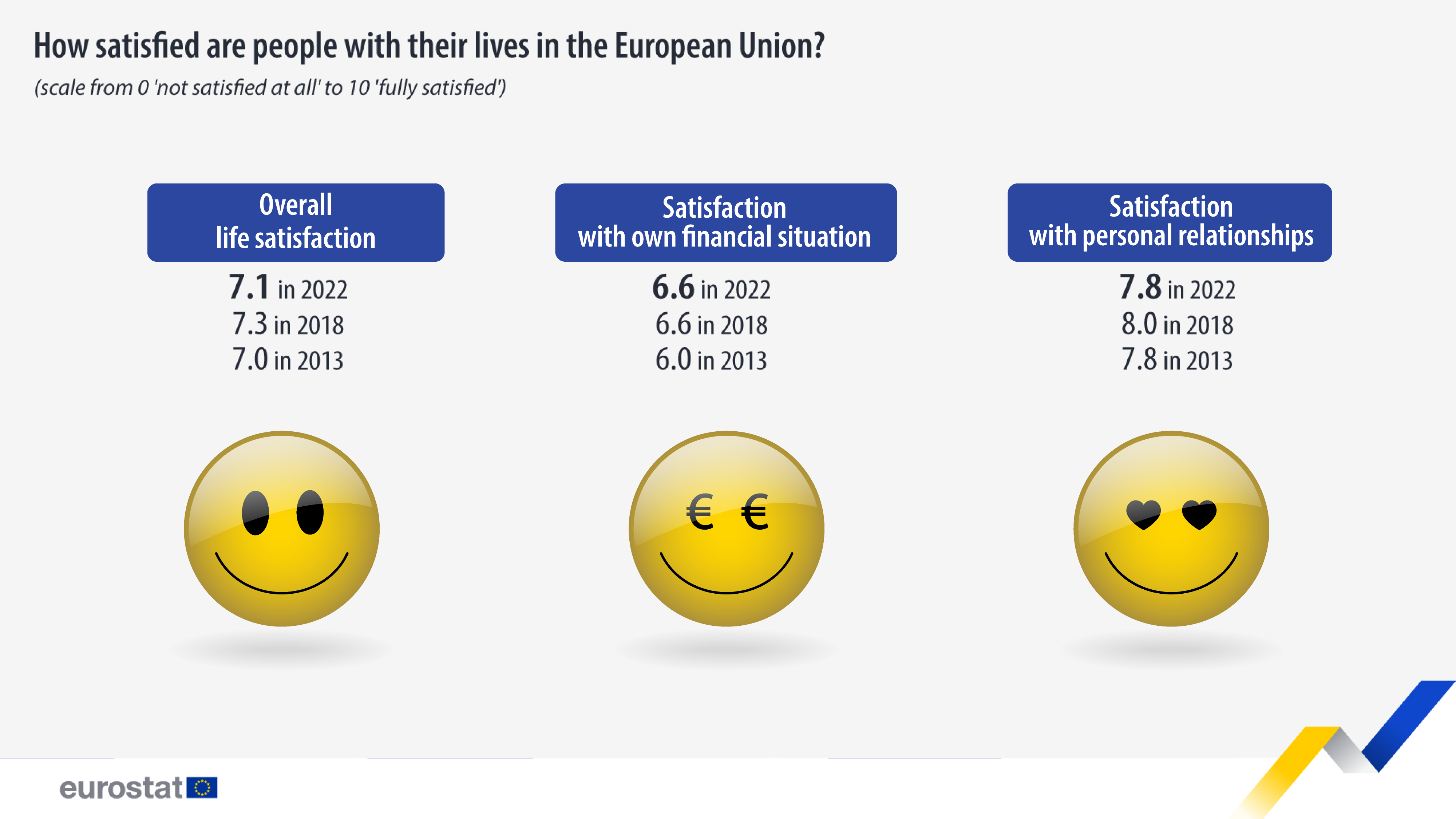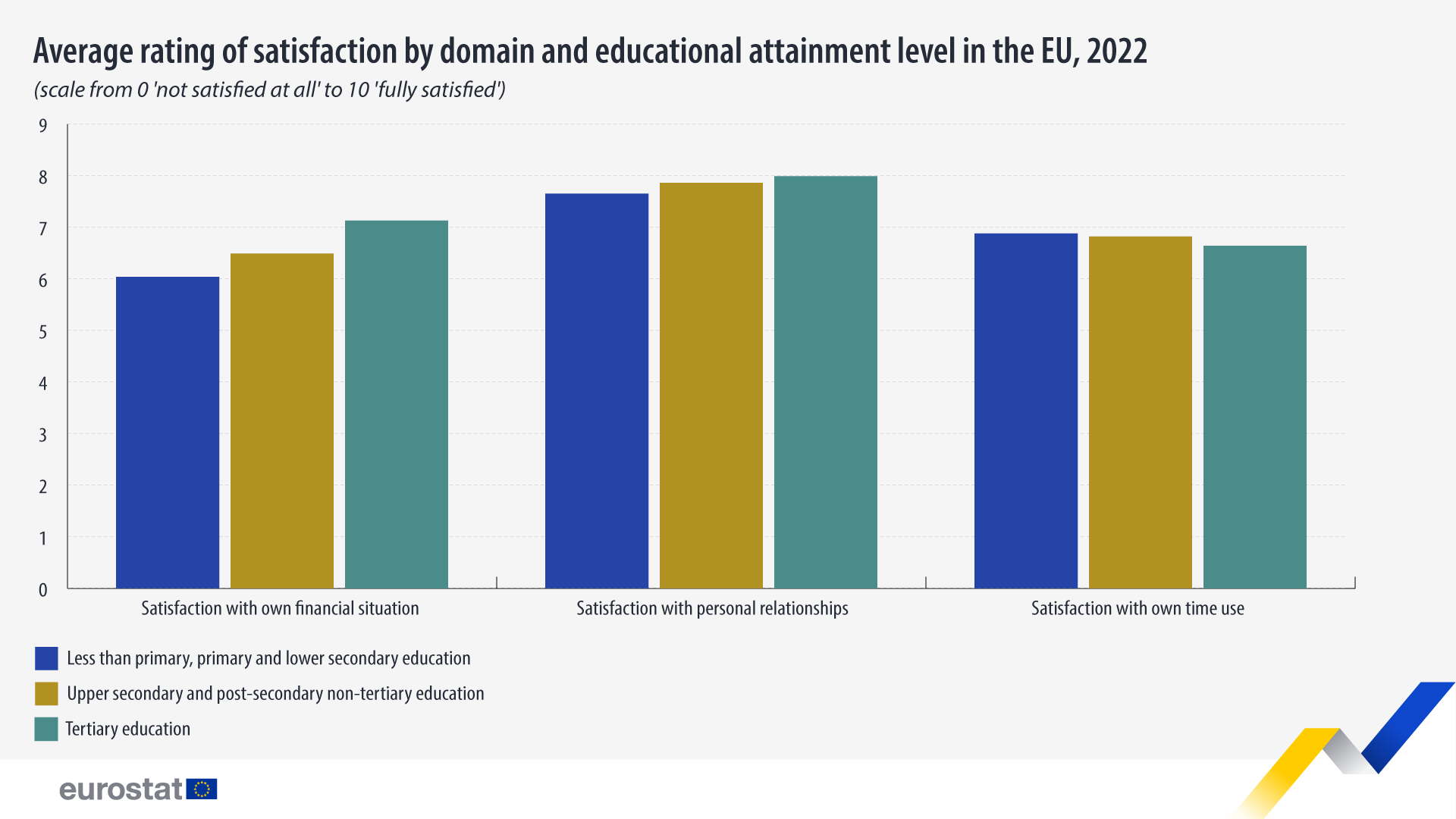High overall life satisfaction in the EU

In 2022, overall life satisfaction in the EU averaged 7.1, based on a scale from 0 (not satisfied at all) to 10 (fully satisfied). The score was slightly down compared with 7.3 in 2018 and consistent with 7.0 in 2013.
People were generally more satisfied with their personal relationships (with a score of 7.8) than with their personal finances (6.6).
Satisfaction with personal finances significantly increased between 2013 (with a score of 6.0) and 2018 and then remained steady until 2022 (6.6).
Satisfaction with personal relationships remained high and generally stable over the 2013-2022 period with a slight increase to 8.0 in 2018.
Source dataset: ilc_pw01
Higher education linked to greater financial and personal relationships satisfaction
Examining life satisfaction based on educational attainment reveals interesting trends. In 2022, satisfaction with financial situations and personal relationships increased with higher educational levels. Satisfaction with financial situations ranged from 6.0 among those with lower secondary education to 7.1 among those with tertiary education. The disparities were less pronounced for satisfaction with personal relationships, with scores ranging from 7.6 among lower secondary education holders to 8.0 among tertiary education holders.
Source dataset: ilc_pw01
Conversely, satisfaction with personal time use (amount of leisure time), exhibited a reverse trend. Those with lower educational attainment reported slightly higher satisfaction, with a score of 6.9 for lower secondary education, followed by 6.8 for upper secondary, and 6.6 for tertiary education.
For more information
- Statistics Explained article on living conditions in Europe – life satisfaction and quality of life
- Thematic section on income and living conditions
- Key figures on European living conditions – 2023 edition
- Database on income and living conditions
If you have any queries, please visit our contact us page.


